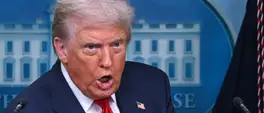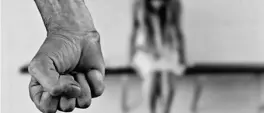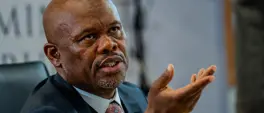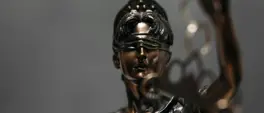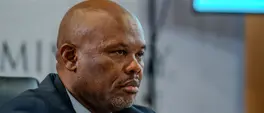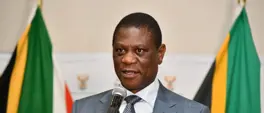JAMIL F. KHAN | How anti-Intellectualism masquerades as liberation
Jamil F. Khan
24 June 2025 | 13:12While conditions of fairness cannot always be counted upon, and systemic biases often disqualify worthy candidates, we must not confuse unfair systems, which must always be challenged, with the valid struggle that knowledge and its resultant authority demands of us, writes Jamil F. Khan.
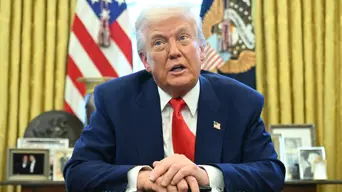
FILE: US President Donald Trump
I recently came across an interview with gender theorist Professor Judith Butler, in which they spoke about, amongst other things, Donald Trump’s propensity for falsehood and the support he garners, in spite of it.
Butler suggests that it is, in fact, because of his flagrant disregard for truth that his followers support him, because it gives them the freedom to hate without consequences.
What Butler refers to as a “right-wing thrill” encompasses knowing that Trump is lying and exaggerating, which brings a sense of exhilaration at the idea that he is “able to say whatever he wants and make it seem true, even though there is no evidence to support it”.
This dishonesty then represents a form of liberation, however misguided. The idea of liberation as freedom from the burden of truth should be more keenly attended to as we grapple with shifting logics of ethics in knowledge production.
The tussle for authority over truth and knowledge is an ancient struggle; however, its more modern iterations should be looked at with urgency for the potential it has to shape the world we live in.
There has always been a very small community of people, dedicated and interested enough to struggle with the demands and responsibilities of knowing.
These demands and responsibilities comprise a burden that many have, over a short period of time, rejected.
At the heart of this rejection is a desire for an easier, quicker path to authority and, by implication, power. Ironically, this desire is a pushback against institutionalised processes of vetting and approval that many have felt is unfair, and elitist.
Though elitism is a real form of inequality that disqualifies those without access to resources from sharing and producing knowledge, what we are witnessing is an embrace of falsehood with the aim of confirming it as truth. This is anti-intellectualism.
This anti-intellectualism has a recent tailwind to thank for propelling it to new heights. When governments across the world took drastic measures to contain the spread of COVID-19, many felt that their most basic human right to freedom of movement was infringed upon. They believed that this was an overreach of state power into the very intimate and private everyday realm of social existence.
The feeling of being told what to do by the government at such a granular level was reminiscent of previous periods in history where state power was abused to oppress and harm citizens. Others, of course, objected to how these restrictions on movement and physical contact, impacted their ability to participate in the economy and earn a living, which constituted a valid problem.
During this time, with the help of social media, many took to the proverbial soapbox to express their discontent, while drumming up a narrative that these conditions amounted to oppression. With many feeling the pinch of economic restriction, these voices became representatives of people power and, therefore, became noble heroes acting in the public interest.
In South Africa, this movement converged with the convenient reality of rampant ANC corruption, still in the thick of the Zondo commission, egging on the belief that the government cannot be trusted.
Our government’s failure to retain the public’s trust offered the perfect breeding ground for disinformation to circulate as a form of alternative truth, which placed itself in direct opposition to state regulations which were characterised as thumb sucked nonsense.
What this “alternative truth” concealed was that the government’s decisions were made in consultation with epidemiologists and medical professionals whose excellent, rigorous work had informed how we already functioned until that point. It also concealed that under these unprecedented conditions, the less popular element of human rights praxis had come to make its demand: responsibility.
We were called into responsibility to keep each other safe from infection by a potentially deadly, uncontained virus. Yes, there are certain instances in which we have to temporarily forego full access to our human rights to protect human life.
Since then, the rejection of responsibility to humanity has proliferated into a belief system that is camouflaged as liberation.
The liberation promises quick, unchecked access to power and resources which has excited a population of people in the United States, as just one example, into supporting a fascist leader with no proof of any suitability for the role of president. Suitability for the roles that take the lives of millions into their hands boils down to an allegiance to rejecting a responsibility to the truth.
It is easy to be seduced by the idea that anybody could take a leadership role because there is nothing special about presidents, doctors, academics, parliamentarians, lawmakers, as a few examples.
While, to some extent, it may be true that how such people get into those positions is not necessarily about being more worthy or special than millions of other people who did not.
However, what does make them special, when they earn their place there, is their willingness to humble themselves before the demands of responsibility.
Responsibility to knowledge, responsibility to truth, and responsibility to critical thought. Leaders are people who submit to the authority of humanity, and the differences that make us human.
It is a position that should be earned, not claimed. It is a position that requires knowledge that is struggled for, not declared. It is a position for which suitability is proven, not insisted upon.
And while conditions of fairness cannot always be counted upon, and systemic biases often disqualify worthy candidates, we must not confuse unfair systems, which must always be challenged, with the valid struggle that knowledge and its resultant authority demands of us.
There are many examples, throughout history, of people who ended up debunking existing knowledge or introducing new and different perspectives on the world that changed how we see the world.
However, those people made sure to labour for an understanding of existing knowledge before trying to challenge its rules. To break the rules, they had to understand them first, and that is the responsibility we are always reminded, comes with the power we seek.
Jamil F. Khan is an author, doctoral critical diversity scholar, and research fellow at the Johannesburg Institute for Advanced Study.
Trending News
More in Opinion
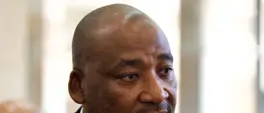
20 February 2026 14:45
JAMIL F. KHAN | Democratic institutions must be protected from rising religious fundamentalism
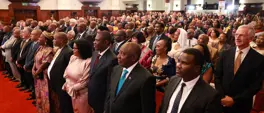
19 February 2026 05:15
CHARLES MATSEKE | From State of the Nation to Republic of Commissions: SA's playhouse of accountability
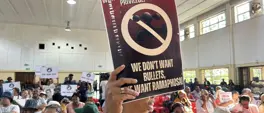
18 February 2026 17:30
VUYANI PAMBO | Biko, Bonga, and the running waters of Gauteng: Towards a liberation theology for South Africa's 2026 Elections
